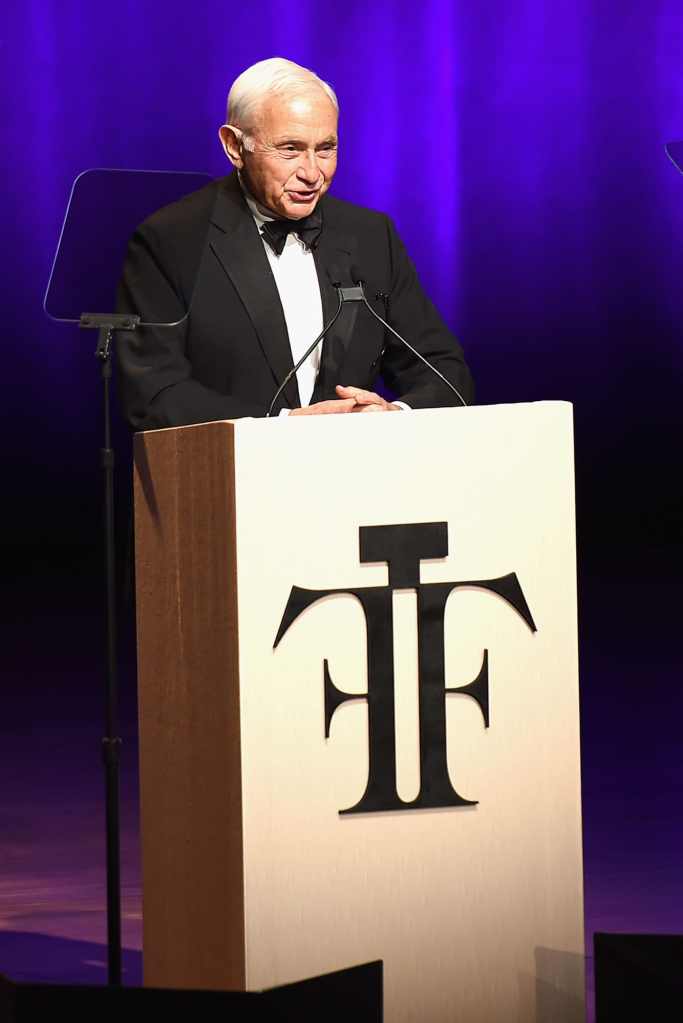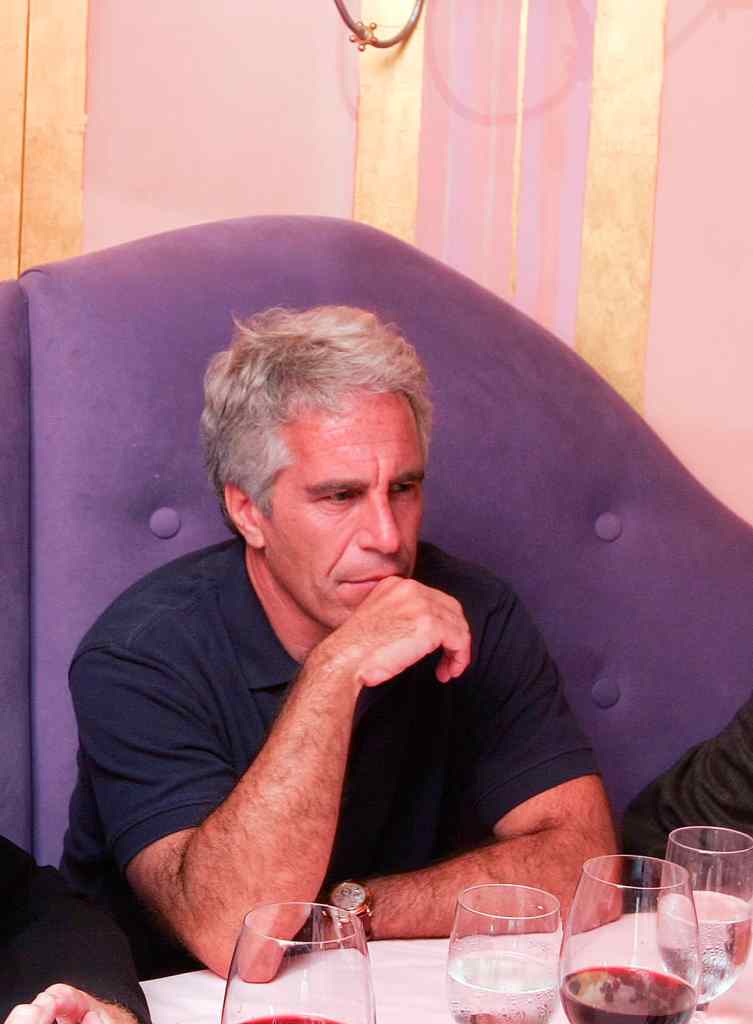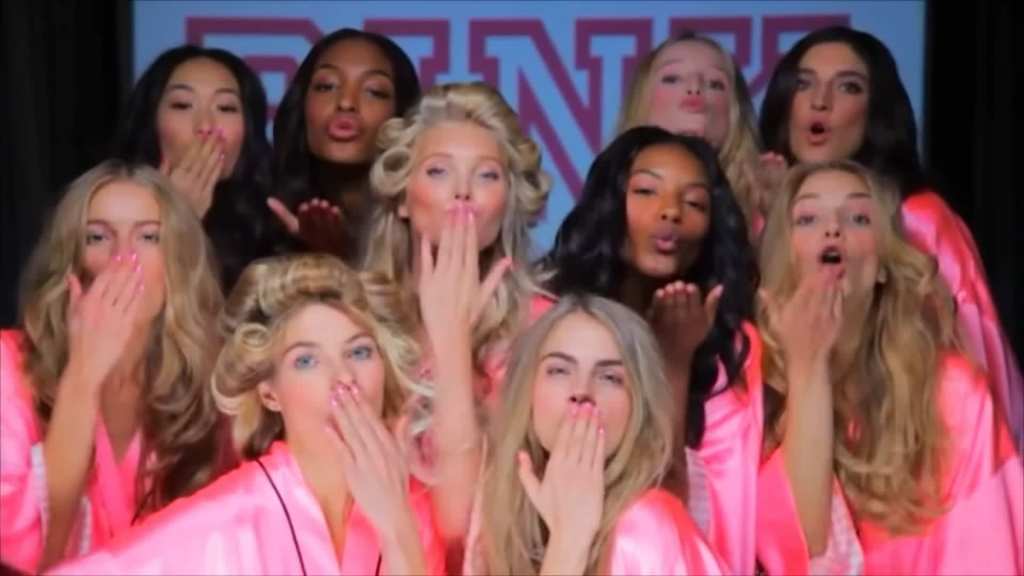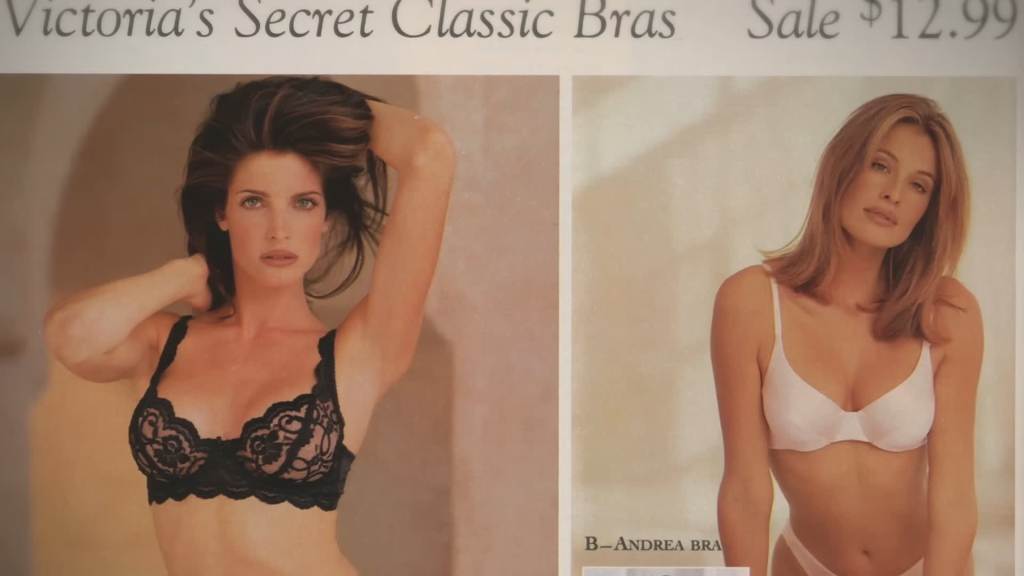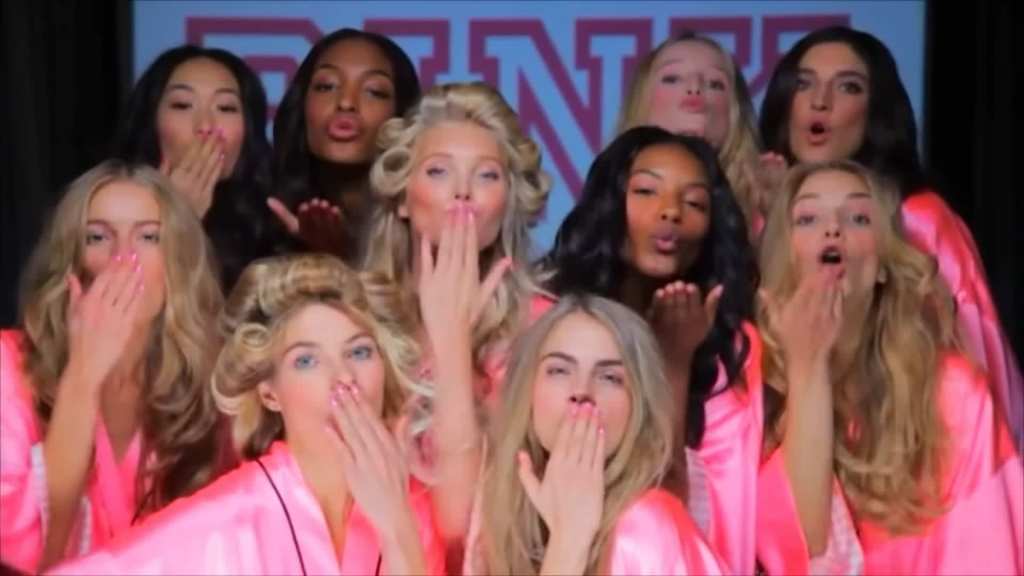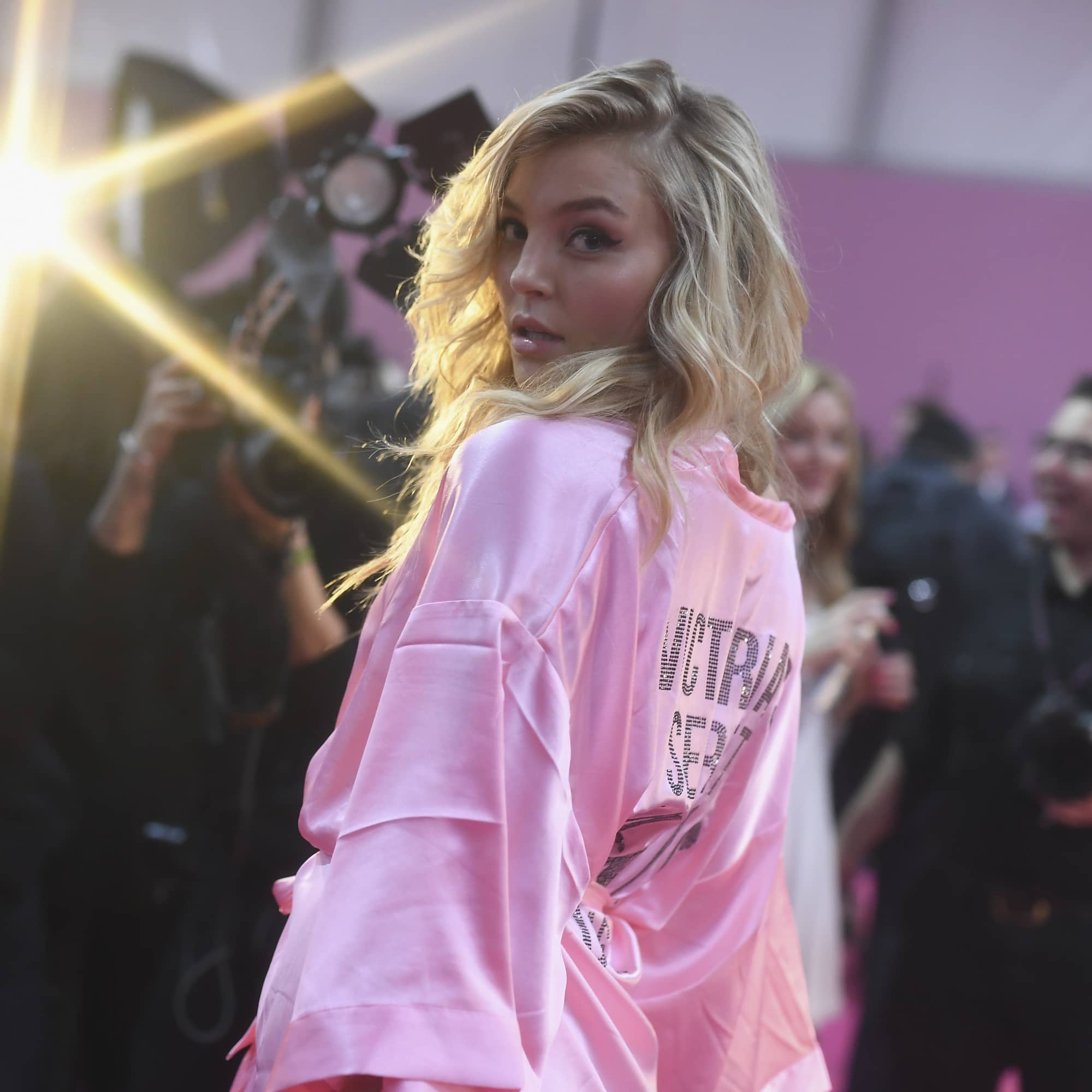- POPSUGAR Australia
- Celebrity
- The 5 Most Shocking Revelations from “Victoria’s Secret: Angels and Demons”
The 5 Most Shocking Revelations from “Victoria’s Secret: Angels and Demons”
Victoria’s Secret is no secret anymore. The new three-part Hulu docuseries, “Victoria’s Secret: Angels and Demons,” which debuted on July 14, unravels the details behind the brand’s billion-dollar empire, its founder, and how it ultimately lost touch with the modern consumer. The teaser trailer showed viewers a first look into not only the scandals but also how con-man and convicted sex-offender Jeffery Epstein played a large role in the brand’s rise and fall.
Director and award-winning journalist Matt Tyrnauer, who’s also known for documentaries that explored the life of Valentino Garavani and Studio 54, said his inspiration for taking on the project came from how unaware he was of the Victoria’s Secret Angels over the last 20 years. “Clearly, I was not their target customer,” Tyrnauer told Yahoo Entertainment. “And when I began to kind of see the entire, vastly influential marketing brand that everyone seems to know about, I had two reactions… Maybe I need to get out a little more. But, also, what the hell was that? I was just astonished at how completely stupid and very successful – maybe one of the most successful ever marketing campaigns was – it just seems like it had no right to be as successful as it was.”
Although a lot of the brand’s controversies aren’t new to fashion and pop-culture-lovers everywhere, some of the biggest revelations that come out of the docuseries deal with the origins of its founder, how the brand’s marketing steered in the wrong directions, and the underlying culture of abuse that existed under the wings of Victoria’s Secret models. Here are six of the biggest “secrets” revealed from “Victoria’s Secret: Angels and Demons,” streaming now on Hulu.
Les Wexner Faked Victoria's Secret's Origin Story
Part one of “Victoria’s Secret: Angels and Demons” establishes the origins of CEO Les Wexner, a small-town boy from Ohio whose father was also an entrepreneur in the clothing and fashion industry. Growing up, Wexner strongly admired the aesthetics, lifestyle, and success of fashion designer Ralph Lauren.
When Wexner decided to pursue women’s lingerie as a business in the early ’80s, his father doubted his success. But in 1982, Wexner bought the original five Victoria’s Secret stores from Roy and Gaye Raymond. He rapidly expanded the store into American shopping malls, making it the largest lingerie retailer in the US by the ’90s, and founded L Brands, which included stores like Abercrombie & Fitch and Bath and Body Works at the time.
In those early days, former Victoria’s Secret executives interviewed in the docuseries said Wexner went to great lengths to keep the brand at the top, and archival interviews with Wexner featured in the doc revealed he always insisted on running a business was like “making a movie.” He invented a fake story about “Victoria” as the original creator of the brand, used beautiful models in luxurious photo shoots as a marketing tactic for their shopping catalogue, created a sense of female empowerment around the brand that millions of women bought into, and conceptualized the Victoria’s Secret Fashion Show to further lure women (and men) into the façade.
Wexner declined multiple requests for an on-camera interview in “Victoria’s Secret: Angels and Demons.”
Jeffery Epstein Had Power of Attorney Over Wexner's Finances and Businesses For Many Years
What shocked many people working alongside Wexner was how heavily (and secretly) involved Jeffrey Epstein was in Victoria’s Secret. According to “Victoria’s Secret: Angels and Demons,” Epstein and Wexner had a close, seemingly mutually beneficial relationship in the company’s early years. Wexner wanted Epstein’s connections in New York City, a place where he felt like an outsider coming from Columbus, OH, so he could grow his business and expand his empire. But Epstein wanted Wexner’s money, power, and easy access to beautiful young women.
At one point in the docuseries, former Victoria’s Secret executive Cindy Fedus-Fields alleged Epstein once claimed he worked for the company and tried recruiting models for their catalogue, which, according to a report by The New York Times, occurred in 1997. Upon learning of this, Wexner allegedly told him it was a “violation of Company policy” and that he was “forbidden from ever doing so again.” While Wexner was upset by this, he did not yet cut ties with Epstein. Wexner had previously granted Epstein power of attorney in 1991, authority Epstein would hold on to for another 16 years, which made Wexner’s colleague’s question Epstein’s involvement in the businesses.
Epstein’s history of sexually assaulting women didn’t bode well for Wexner’s image, however, especially when serious allegations against him from specific models like Alicia Arden began trickling into the press. In 2008, Epstein was convicted on charges of child prostitution and soliciting a prostitute in Florida, where he served only 13 months and agreed to probation with extensive and unprecedented privileges. Epstein was registered as a level-three sex offender with the state of New York, and in light of this, Wexner withdrew Epstein’s power of attorney. Wexner claimed to have severed ties with him completely after this, stating he was never aware of Epstein’s criminal activity during their relationship. By 2019, Epstein was arrested by the FBI on sex trafficking charges, where a decades-long investigation uncovered evidence Epstein had sexually assaulted at least 36 girls, some as young as 14 years old.
That same year, in a letter to his foundation, Wexner wrote, “I am embarrassed that, like so many others, I was deceived by Mr. Epstein. I know now that my trust in him was grossly misplaced, and I deeply regret having ever crossed his path.”
Epstein was awaiting trial on sex trafficking charges, but would never face trial. He was found dead in his jail cell in August 2019, having died by suicide. Epstein’s looming influence and shady business dealings set a strong culture of abuse over Victoria’s Secret from the beginning.
Plans to Market to Younger Generations Caused the Fantasy to Fade
Former Victoria’s Secret executives interviewed in the docuseries speculated that the late ’90s and early 2000s were when the brand stepped into a new era. Iconic pop culture movies like “Sex and The City” were becoming mainstream, and women were beginning to own and become more invested in their sexuality.
The Victoria’s Secret Angels – beautiful, skinny models in VS’s lingerie – were born as an advertising play, leading to the first Victoria’s Secret Fashion Show in 1999, which ultimately crashed their website to the sheer amount of people watching online. Models who got their start from the brand, like Tyra Banks and Heidi Klum, often said they were overworked, criticized for their looks (even when their photos were often retouched), and hypersexualized to keep up Victoria’s Secret’s idea of “what is sexy,” showcasing a lack of diversity between body types.
By the mid-2000s, the creation of Pink aimed to target a younger generation of girls to buy into Victoria’s Secret’s brand, and Wexner’s preliminary tactics to create a faux women empowerment façade in his company began to unravel. According to the documentary, many former employees and models, like Frederique Van Der Wal, said this was when Victoria’s Secret felt more about selling the fantasy and less about the clothes, fashion, or anything relatable to what real women and girls should look like or strive for.
Victoria's Secret Focused on Hiring Female Executives, but the Men Were Still in Charge
The docuseries touched on how Wexner and chief marketing officer Ed Razek held a patriarchal hierarchy over the company. Archival footage shows Razek and Wexner advocating for women and hiring them as executives in high-level positions at Victoria’s Secret, but some of those women interviewed said there was always an underlying level of discrimination.
In marketing campaigns between female executives, they would often try to make changes for what real women would want for the Victoria’s Secret brand, but male executives like Razek and Wexner would have the final say. Former employee Sarah Zofko argued that by 2007, the brand became so focused on the sexuality of the models and how men should view “perfect women” that much of their marketing and advertising bordered on soft-core pornography. This narrow vision and extremely high standard of beauty (potentially making women feel more insecure than empowered about their bodies) was also one of the factors many former employees said contributed to the downfall of Victoria’s Secret’s “sexy” era.
Sexual Assault Rumors and Allegations Among Models and Employees Were Essentially Ignored
Despite all the models smiling faces and empowering words of affirmation in press interviews, “Victoria’s Secret: Angels and Demons” reveals things weren’t always perfect behind the curtain of the Victoria’s Secret Fashion Show. Many former employees, designers, casting directors, and models said the show was one of the avenues for men in high-level positions at the company and their inner circles to gain access to young beautiful women, where they were allegedly sexually harassed or assaulted.
Some employees said there were often jokes about harassment thrown around at meetings that were met with nervous laughter or shrugged off entirely because of how many allegations they saw daily. Whether any of them truly knew about Epstein’s involvement at the time or not, allowing that culture to be swept under the rug was a precursor for the brand’s impending bigger problems.


